Submitted by WA Contents
OMA and Bengler critique sharing economy with PANDA project installed at Oslo Architecture Triennale
Norway Architecture News - Sep 09, 2016 - 15:50 19254 views
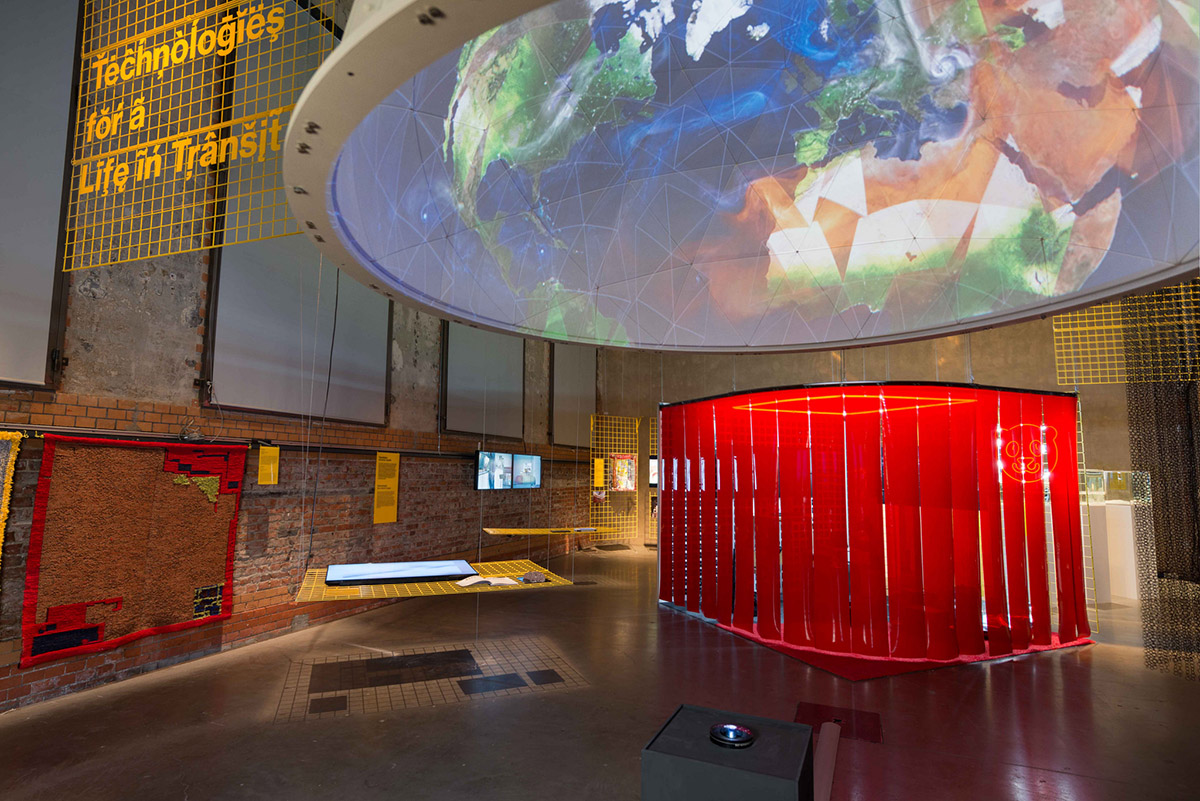
Oslo Architecture Triennale (OAT) has kicked off this week and new images have started to circulate from the exhibitions as the theme of the Triennale perfectly sits to the core of the discussion. Attributed to the theme of the Triennale 'After Belonging', OMA and Bengler's project PANDA opened today on Residence exhibition site with red plastic drip curtains, investigating the accelerating influence of digital sharing platforms, their social and political implications, and pervasive impact on the built environment.
According to OMA, considering the early 2000s, the democratic spaces of the web were greeted as an alternative to centralized commercial and social structure; in 2007, after the financial landslide, the sharing gospel gave hope to those struggling to make a living.
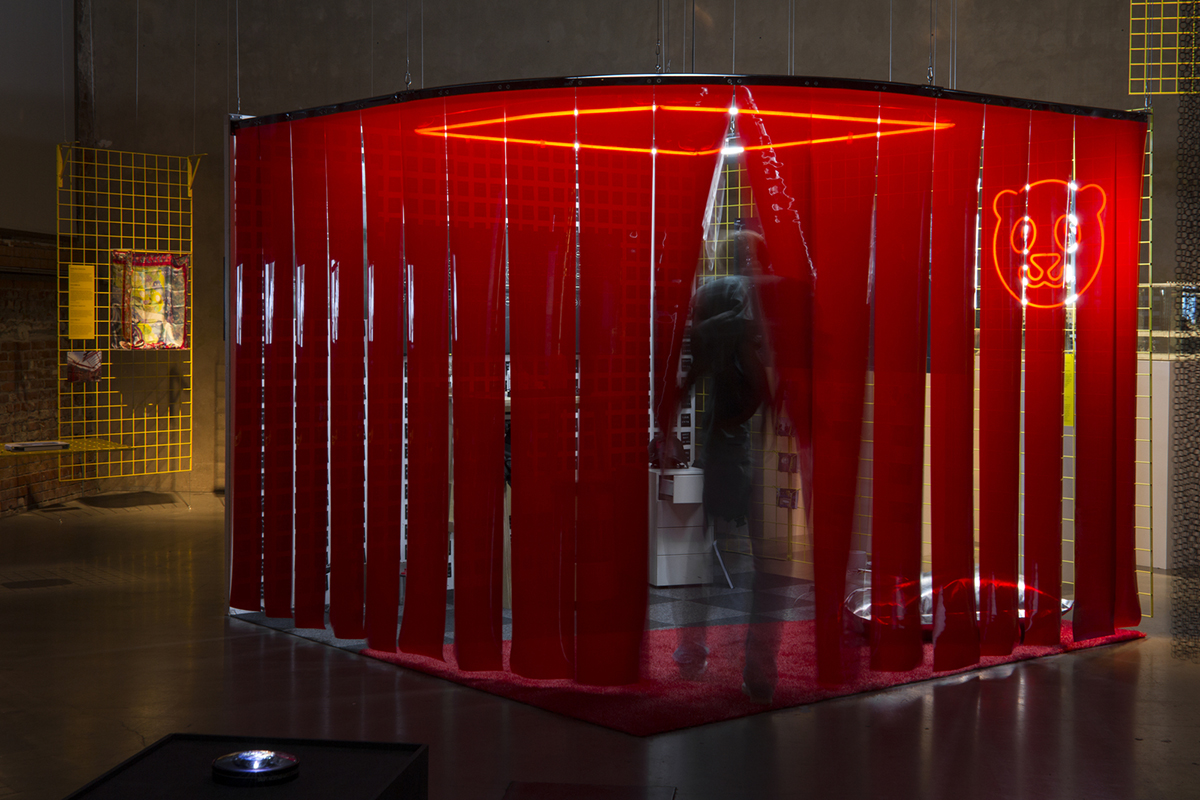
Image © OMA & Bengler
The boom of “sharing platforms” provided the private sphere with powerful market mechanics, enabling the fluid commodification of life. Flexible, web-scale human resourcing drew “app freelancers” into the gig economy — an unprecedented economic reactivation of latent human assets. A new labor force emerged, one obliged to hire itself out for ever-smaller jobs with no safety net, as companies profited handsomely.
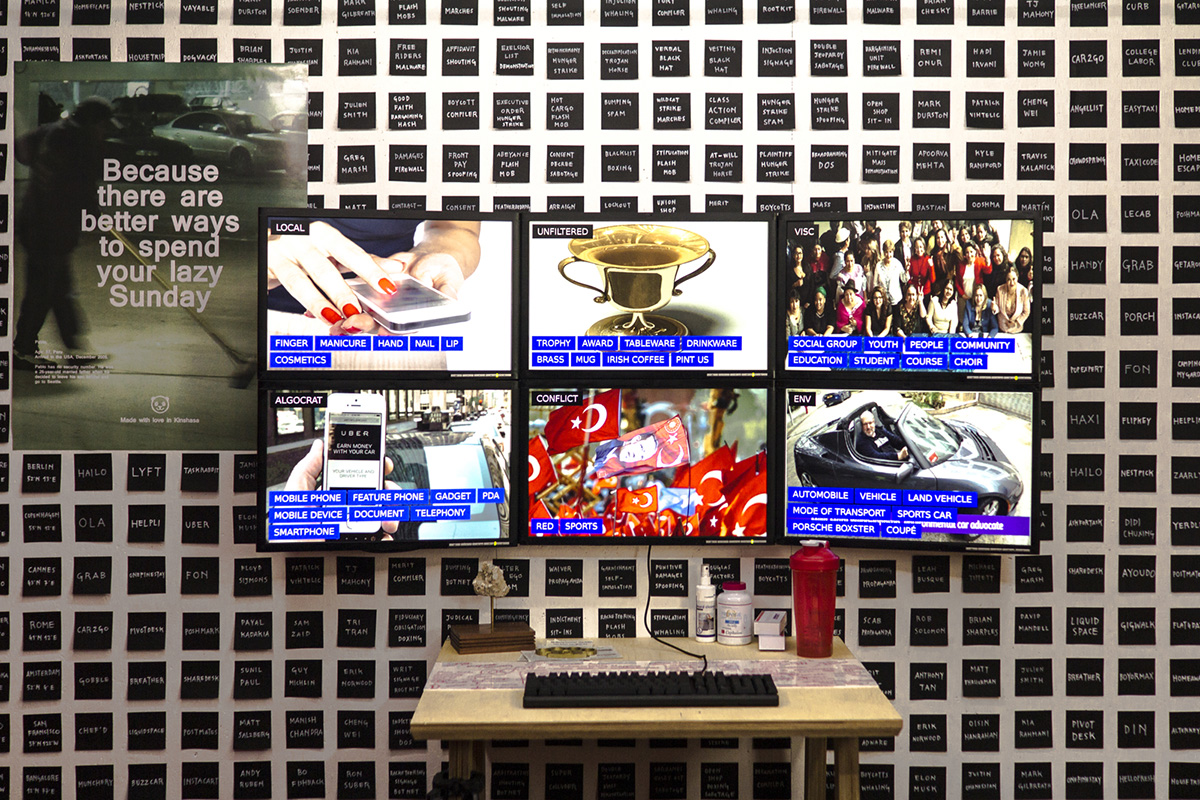
Image © OMA & Bengler
''While sharing platforms employ organizational tools of savage power, masses are atomized — strong-armed into unorganized negotiation. Crowds attack taxis and block streets as services are banned in countries around the world. Unrest is staged against app-based, short-term accommodation platforms and the conversion of entire buildings into de facto hotels,'' says the designers of PANDA.
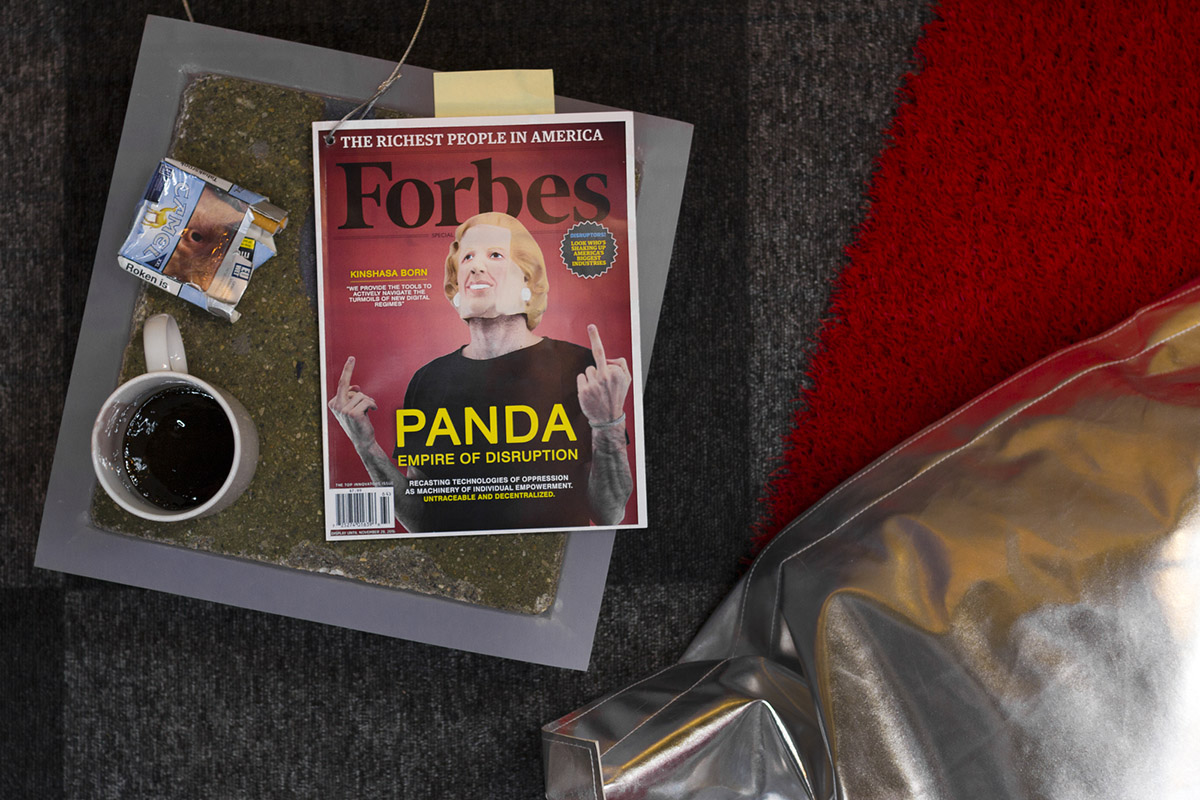
Image © OMA & Bengler
PANDA is a counter-organizational platform, providing a tactical disruption-as-a-service toolkit, empowering app workers with the means to mediate terms with the platforms and their algocrat masters. That the service materialized out of Kinshasa is probably a fabrication.
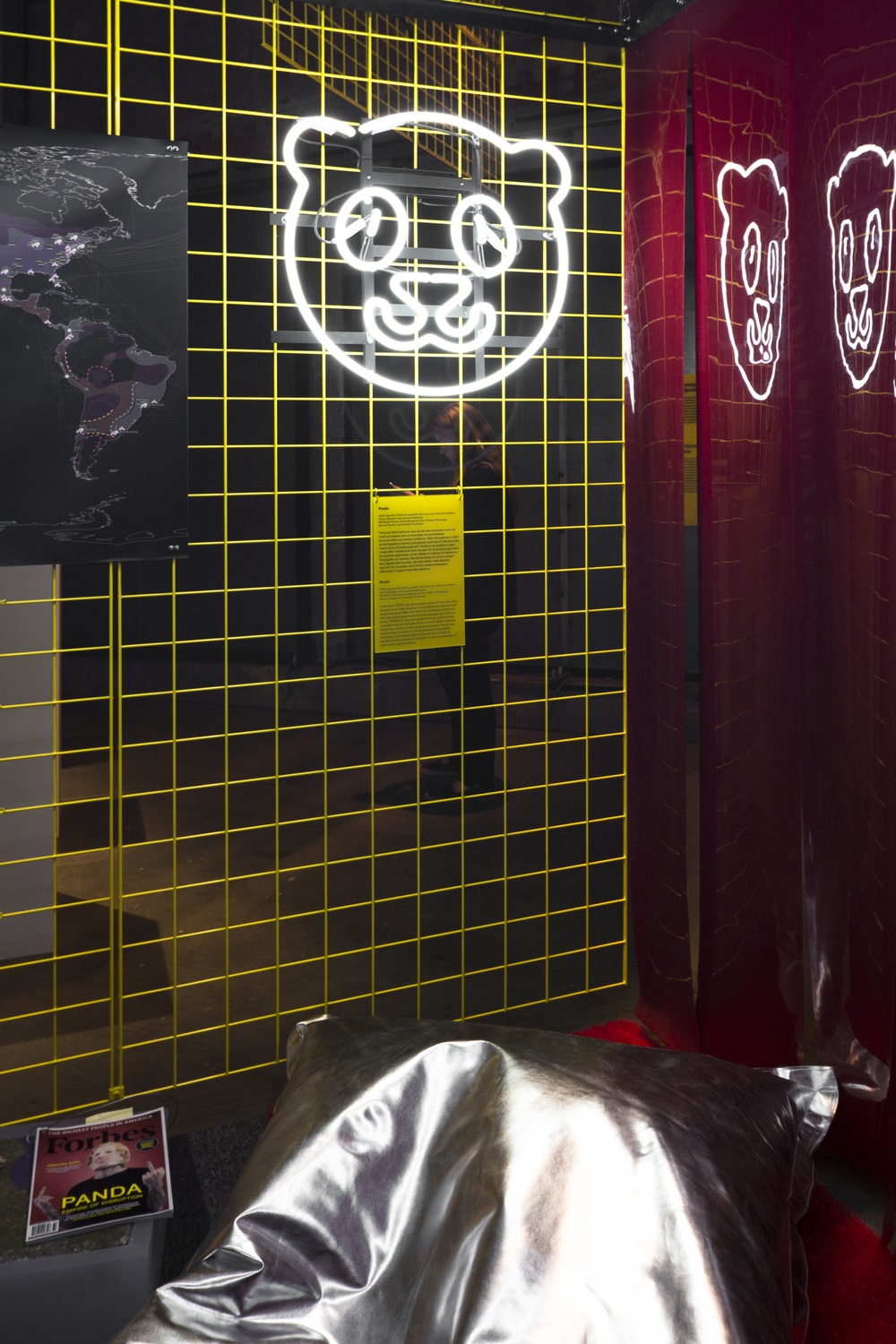
Image © OMA & Bengler
Skirting traditional venture capital cycles, it nevertheless emerged as a distributed, open source network of for-profit tactical nodes. Untraceable and decentralized, a system of vast data and self-regulating algorithmic control.

PANDA is now a public company on the New York Stock Exchange, it uses the stock symbol PNDK. Image © OMA & Bengler
PANDA is at once an act of resistance and a business opportunity, conceived within the cultural framework and space of new digital economic realms. It is the antibody of metastasizing platform capitalism.
Within mere months, PANDA experienced dramatic expansion, crystallizing the masses in tactical just-in-time action groups: from intangible interventions to exaggerated physical transformations. As software eats the world, as everything solid melts into air, PANDA recasts technologies of oppression into a machinery of individual empowerment. By providing tools to actively navigate the turmoils of new digital regimes, PANDA fosters a new sense of belonging and purpose.
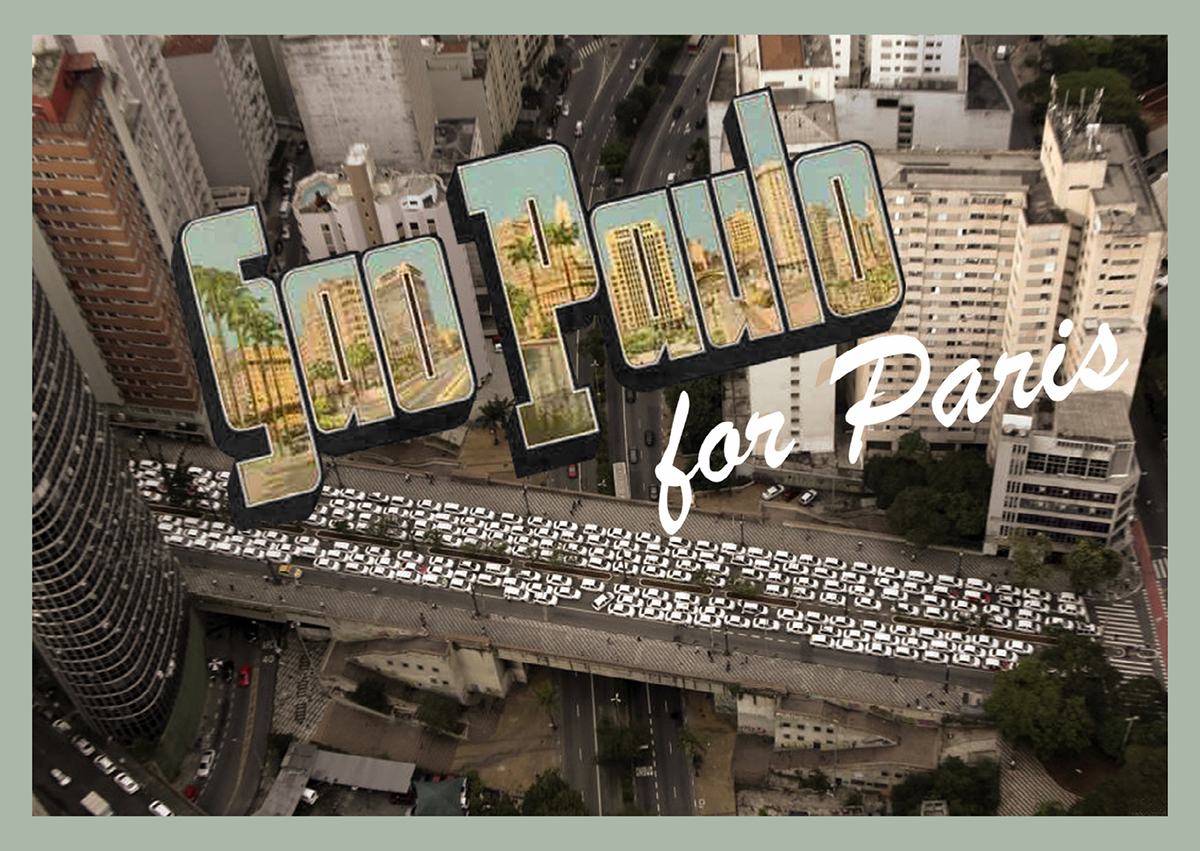
Image © OMA & Bengler
PANDA has been led by OMA’s Ippolito Pestellini Laparelli and Bengler’s Even Westwang and Simen Svale Skogsrud. It is part of the On Residence exhibition, on display at the National Museum of Architecture.

Image © OMA & Bengler
Oslo Architecture Triennale will continue until November 27, 2016 and This year's topic focuses on After Belonging: A Triennale In Residence, On Residence and the Ways We Stay In Transit, which examines the objects, spaces, and territories for a transforming condition of belonging. Global circulation of people, information, and goods has destabilized what we understand by residence, questioning spatial permanence, property, and identity—a crisis of belonging.
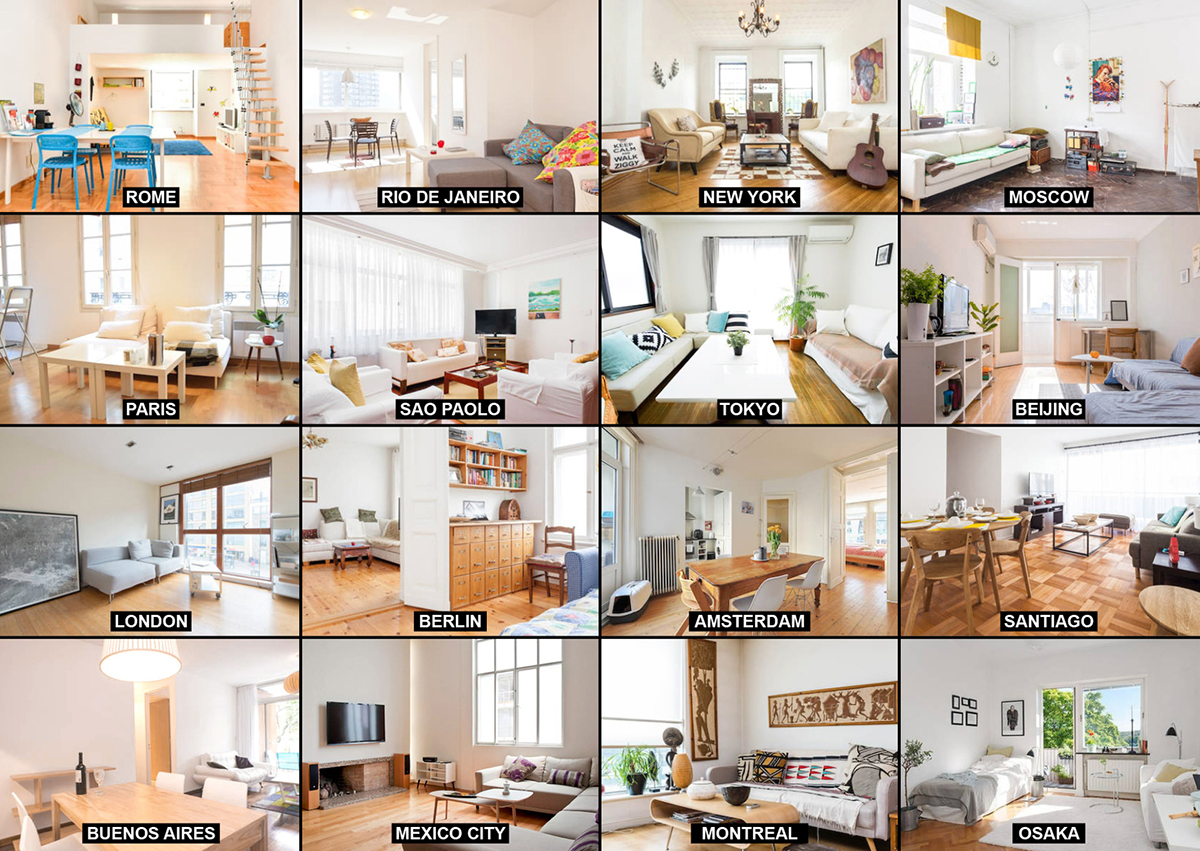
Image © OMA & Bengler

Image © OMA & Bengler
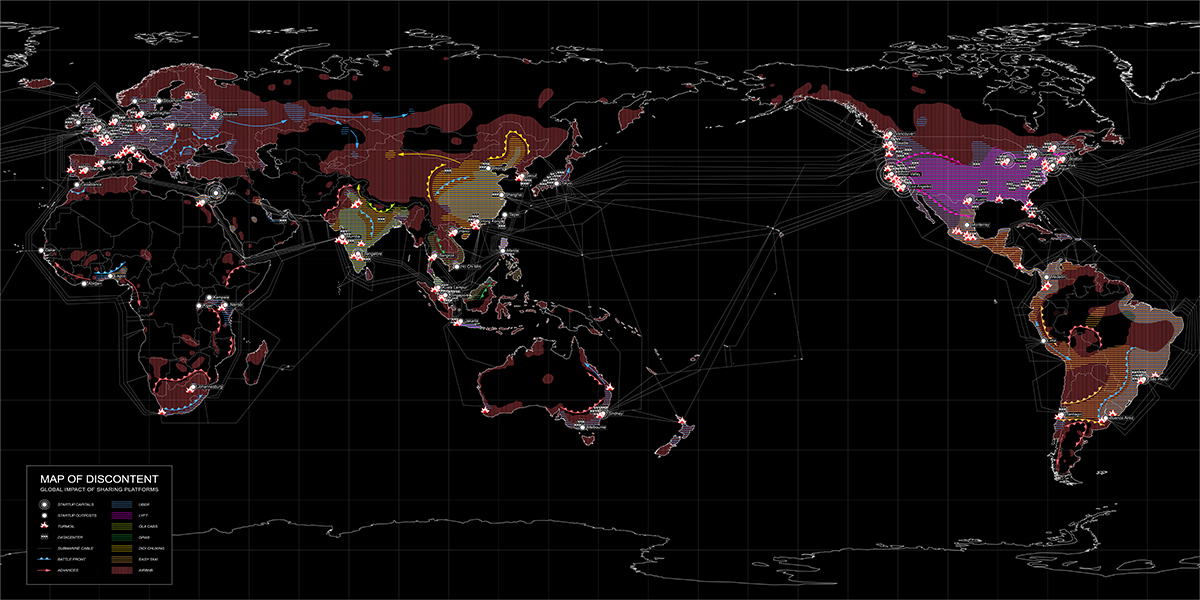
Map of discontent. Image © OMA & Bengler
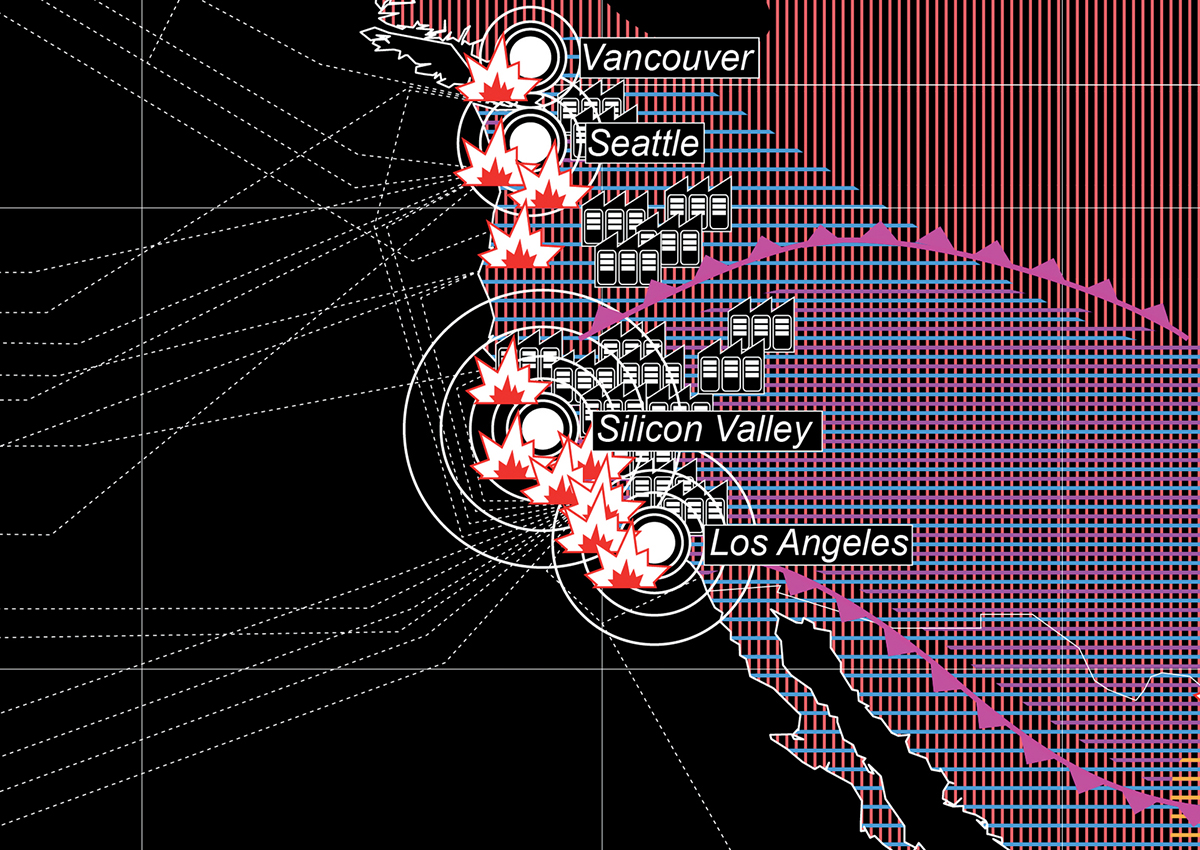
Atomized masses. Image © OMA & Bengler
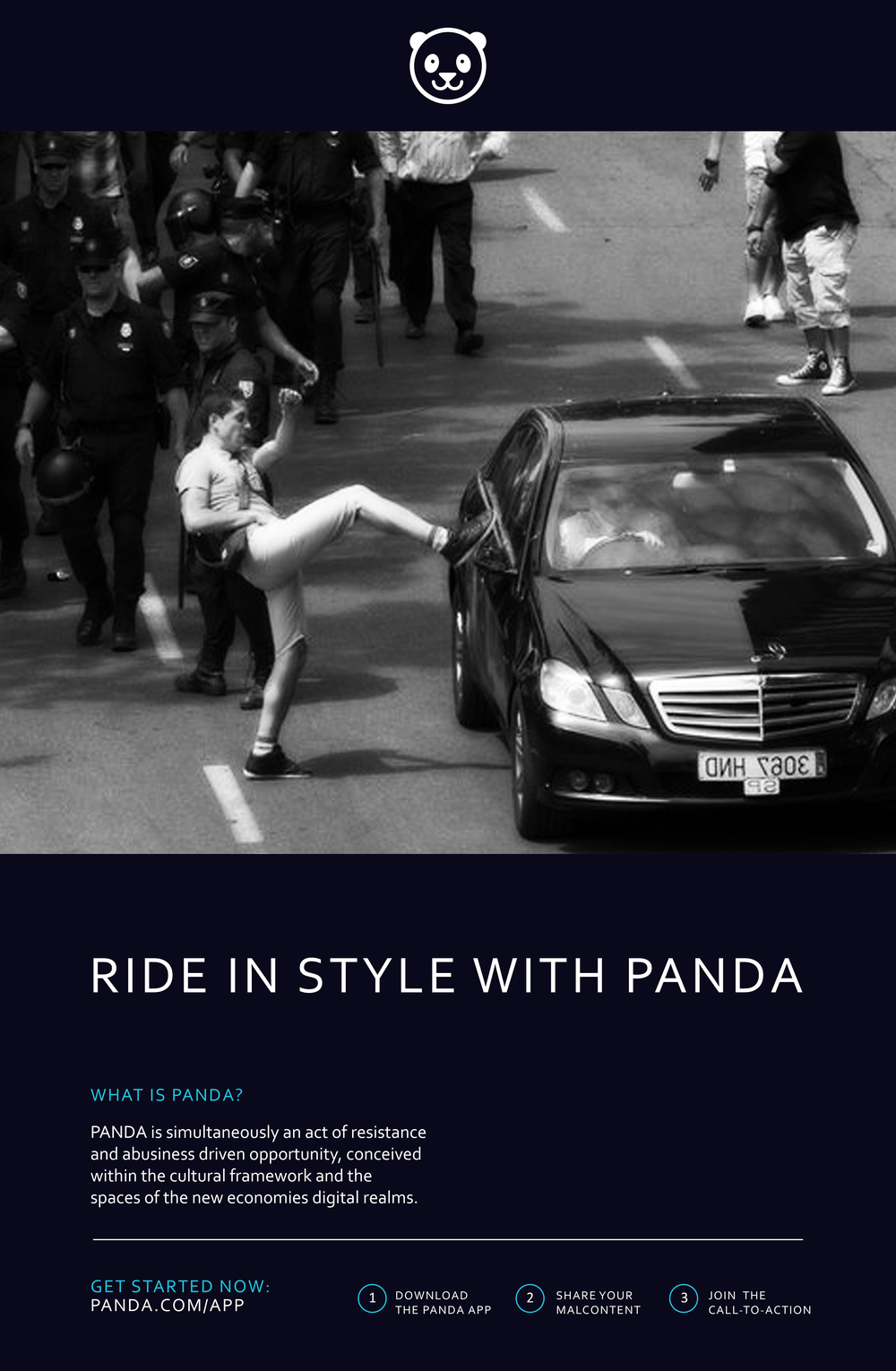
Image © OMA & Bengler
Top image: OMA and Bengler's PANDA installation in the On Residence exhibition for the 2016 Oslo Architecture Triennale. Image © Istvan Virag, courtesy of Oslo Triennale
> via OAT